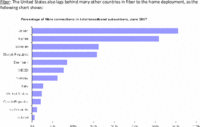
On
The Communicators on C-SPAN (23 Feb 2008), Marc Rotenberg of Electronic Privacy Information Center (EPIC)
made an interesting point.
Retroactive immunity for warrantless wiretapping could well mean to telcos that the law could change at the whim of the president, so they might be
more apprehensive about cooperating with governmental wiretap requests.
After all, the current legal framework says they do have to cooperate
if served a warrant, but not without.
Such whims could mean they have to cooperate with any old request
or face retribution.
They may already think that, due to
Joe Nacchio of Qwest claiming that his company was denied contracts for not cooperating as part of his appeal against an
insider trading conviction, which case itself is bogus if he’s right that he had reasonable expectation of such contracts.
It’s a funny thing when you subvert the rule of law and replace it with
a “unitary executive”: nobody knows where they stand anymore.
Meanwhile, Patrick Philbin, identified in the on-screen legend only
as a “Washington-area attorney” (the introduction did say he was formerly
a Bush appointee in various positions), kept claiming that there wasn’t
even any proof that any telcos had cooperated without warrants,
while arguing that without retroactive immunity they wouldn’t cooperate.
In addition to those positions being somewhat contradictory,
if I’m not Cheney has said on the air recently that the telcos
did cooperate, so I don’t know why Philbin continues this sort
of obfuscation.
Well, unless it’s the obvious: he’s protecting his former bosses.
The Communicators is very interesting because it one or two people
half an hour to say what they mean in their own words.
YMMV, but in this case it sure looked to me like Rotenberg was
being very reasonable and standing for the rule of law,
while Philbin was stonewalling using every legal subterfuge
that came to his mind.
This impression wouldn’t have been nearly as clear from a few sound bites.
-jsq
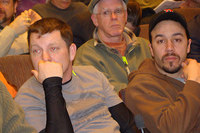 This appears to be the week for Comcast to really make a fool of itself.
This appears to be the week for Comcast to really make a fool of itself.



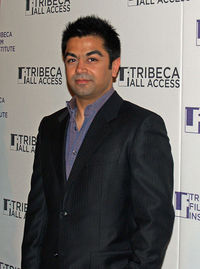
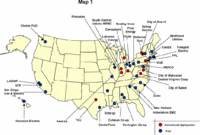
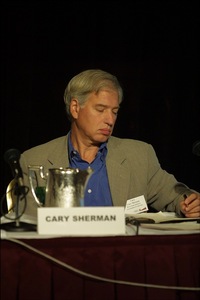
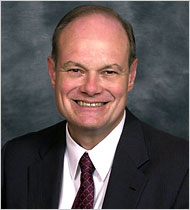
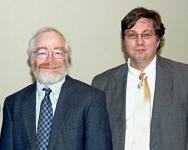 Matt Blaze has been spreading the word about a forthcoming paper
by him and a Who’s Who of Internet security experts (Steve Bellovin and Matt Blaze are pictured to the right).
Matt Blaze has been spreading the word about a forthcoming paper
by him and a Who’s Who of Internet security experts (Steve Bellovin and Matt Blaze are pictured to the right).
